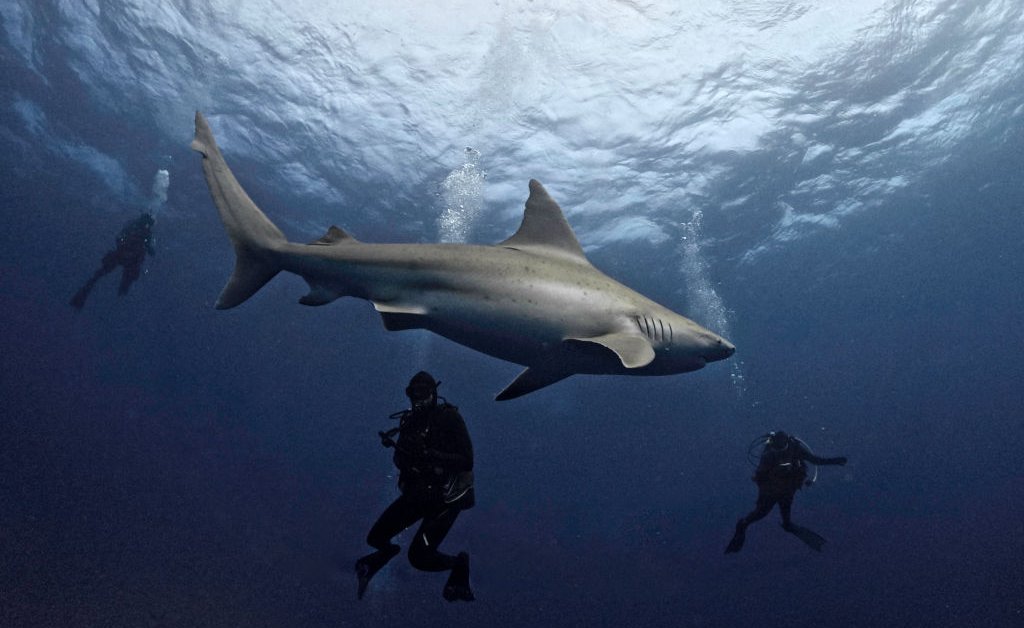The Jaws Effect: How A Movie Fueled Misconceptions About Shark Behavior And Conservation

Welcome to your ultimate source for breaking news, trending updates, and in-depth stories from around the world. Whether it's politics, technology, entertainment, sports, or lifestyle, we bring you real-time updates that keep you informed and ahead of the curve.
Our team works tirelessly to ensure you never miss a moment. From the latest developments in global events to the most talked-about topics on social media, our news platform is designed to deliver accurate and timely information, all in one place.
Stay in the know and join thousands of readers who trust us for reliable, up-to-date content. Explore our expertly curated articles and dive deeper into the stories that matter to you. Visit Best Website now and be part of the conversation. Don't miss out on the headlines that shape our world!
Table of Contents
The Jaws Effect: How a Movie Fueled Misconceptions about Shark Behavior and Conservation
The summer of 1975 saw the release of Steven Spielberg's Jaws, a cinematic masterpiece that terrified audiences and cemented the great white shark's place in popular culture. But the film's legacy extends beyond box office success; it profoundly impacted public perception of sharks, fueling misconceptions that continue to hinder shark conservation efforts today. This article explores the lasting "Jaws Effect" and its devastating consequences for these magnificent creatures.
The Myth of the Man-Eating Machine: Jaws portrayed a relentless, intelligent great white shark as a human-hunting machine, actively seeking out and attacking humans. This portrayal, while dramatically effective, is wildly inaccurate. While attacks do occur, they are exceedingly rare, and often the result of mistaken identity or accidental encounters. Great white sharks primarily feed on seals, sea lions, and other marine mammals. The film's depiction fostered a widespread fear of sharks, far exceeding the actual risk.
The Impact on Shark Populations: The fear ignited by Jaws led to a dramatic increase in shark culling. Governments and individuals, fueled by panic and misinformation, launched widespread hunts, decimating shark populations globally. This indiscriminate killing, driven by a movie's narrative, contributed significantly to the decline of many shark species, pushing some towards extinction. The long-term ecological consequences are still being felt today. The removal of apex predators like great white sharks disrupts the delicate balance of marine ecosystems, leading to cascading effects throughout the food chain.
Beyond the Fear: Understanding Shark Behavior: Scientific understanding of shark behavior has advanced significantly since 1975. Research reveals the crucial role sharks play in maintaining healthy ocean ecosystems. They are vital to controlling prey populations, preventing overgrazing of coral reefs, and maintaining biodiversity. Organizations like the Pew Charitable Trusts and the Shark Conservation Society are working tirelessly to educate the public and promote responsible shark conservation practices.
Debunking the Myths and Promoting Conservation: To counteract the lingering "Jaws Effect," several initiatives are underway:
- Educational Programs: Schools and marine conservation centers are implementing educational programs to teach children and adults about the true nature of sharks, dispelling myths and promoting scientific understanding.
- Shark Awareness Campaigns: Public awareness campaigns utilize social media and documentaries to highlight the importance of shark conservation and the devastating impact of human activities on their populations.
- Sustainable Fishing Practices: Promoting sustainable fishing practices, including reducing bycatch (the accidental capture of non-target species), is crucial to protecting shark populations.
- Supporting Research: Continued research on shark behavior and ecology is vital to informing effective conservation strategies.
A Call to Action: The legacy of Jaws serves as a stark reminder of the power of media to shape public perception and influence conservation efforts. By promoting accurate information, supporting scientific research, and advocating for sustainable practices, we can help protect these magnificent creatures and preserve the health of our oceans for future generations. Learn more about shark conservation by visiting the websites of organizations dedicated to their protection. Your support can make a difference.

Thank you for visiting our website, your trusted source for the latest updates and in-depth coverage on The Jaws Effect: How A Movie Fueled Misconceptions About Shark Behavior And Conservation. We're committed to keeping you informed with timely and accurate information to meet your curiosity and needs.
If you have any questions, suggestions, or feedback, we'd love to hear from you. Your insights are valuable to us and help us improve to serve you better. Feel free to reach out through our contact page.
Don't forget to bookmark our website and check back regularly for the latest headlines and trending topics. See you next time, and thank you for being part of our growing community!
Featured Posts
-
 Pre Game Analysis Bayern Munich Takes On Boca Juniors June 20 2025
Jun 20, 2025
Pre Game Analysis Bayern Munich Takes On Boca Juniors June 20 2025
Jun 20, 2025 -
 Major Recall Forces Ford To Halt Mustang Mach E Sales What Owners Need To Know
Jun 20, 2025
Major Recall Forces Ford To Halt Mustang Mach E Sales What Owners Need To Know
Jun 20, 2025 -
 Thursday Severe Weather Outlook For Dc Isolated Tornadoes Possible
Jun 20, 2025
Thursday Severe Weather Outlook For Dc Isolated Tornadoes Possible
Jun 20, 2025 -
 James Woods Game Winning Blast Nationals Defeat Rockies
Jun 20, 2025
James Woods Game Winning Blast Nationals Defeat Rockies
Jun 20, 2025 -
 Major Recall Ford Issues Warning For Mach E Electric Vehicles Due To Potential Lockout
Jun 20, 2025
Major Recall Ford Issues Warning For Mach E Electric Vehicles Due To Potential Lockout
Jun 20, 2025
